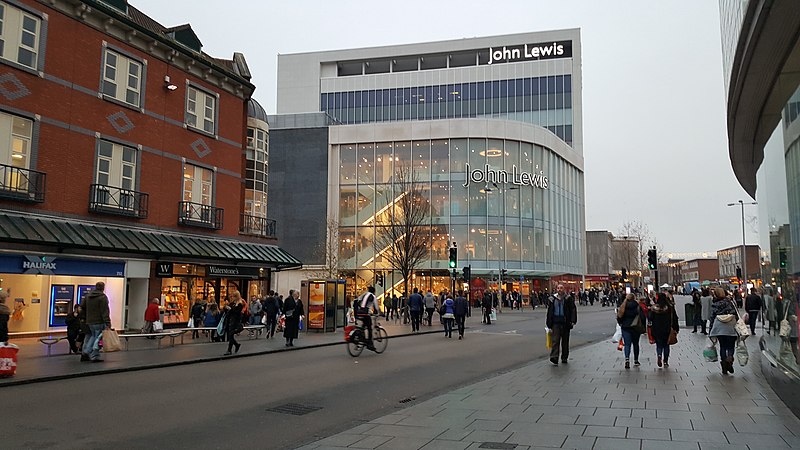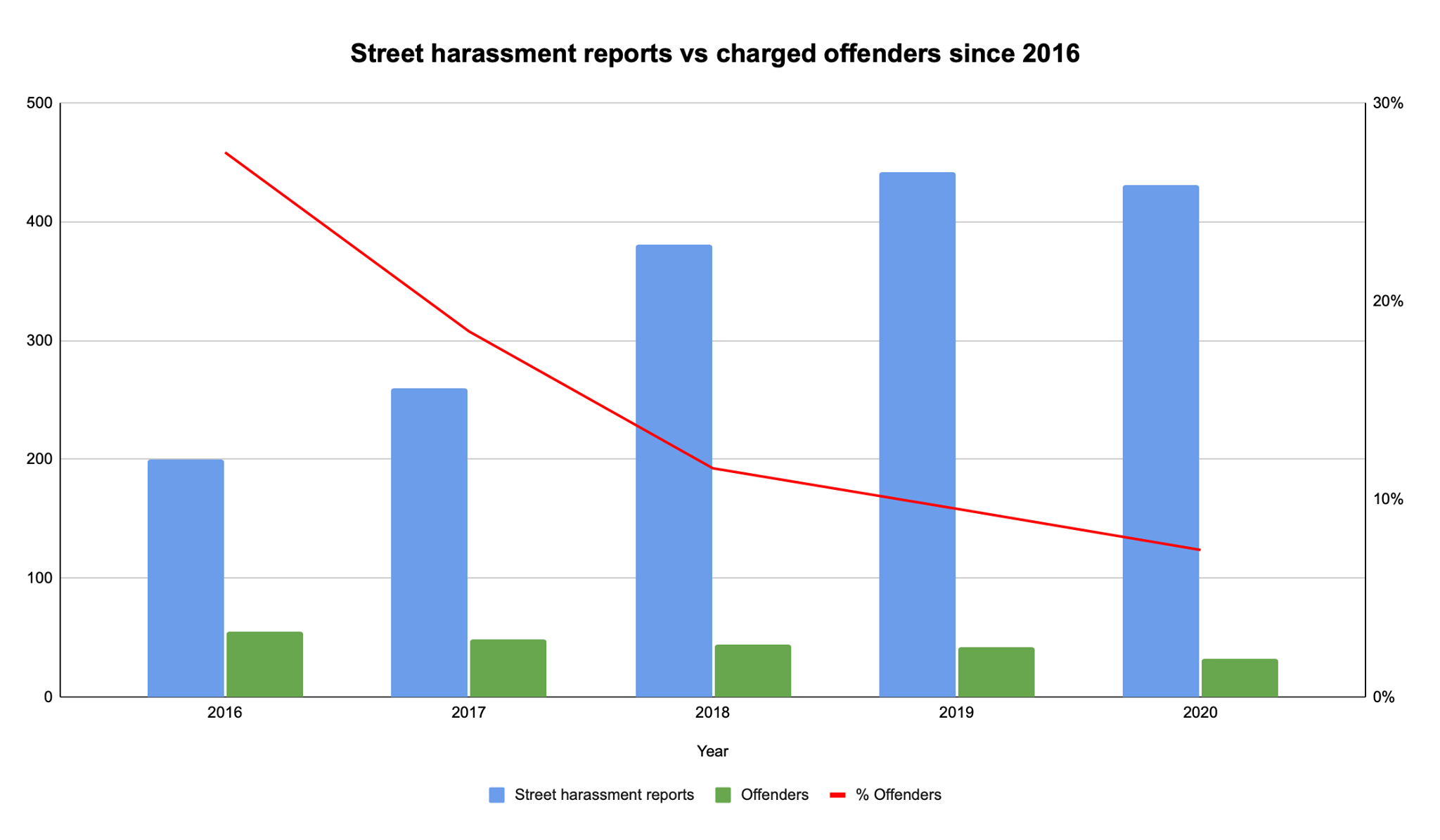Street harassment and stalking reports in Exeter double since 2016

According to data obtained through the Freedom of Information Act, street harassment and stalking reports in Exeter have more than doubled over the last five years.
Devon and Cornwall Police recorded 200 street harassment reports in 2016. By 2020, the figure increased to 431, although reports peaked in 2019 at 442. Stalking reports also went up from 10 to 79 – an almost eight-times increase.
The total number of harassment victims rose from 180 to 355 but there were 58 stalking victims last year compared to just seven, four years prior. The majority of victims of street harassment and stalking are female – an average of 76 per cent across the period.
However, there has been a decline in convicted offenders for harassment: 28 per cent were convicted in 2016 and only seven per cent last year. This can be partly attributed to the fact that some investigations are still ongoing. Of 2016’s harassment offenders, 92 per cent were male. As for stalking, all of the offenders over the last five years were male. Cases of domestic abuse stalking have an approximate conviction rate of 12 per cent while non-domestic abuse stalking has a six per cent conviction rate.
Every year, the most commonly reported form of street harassment is ‘harassment without violence’ and the same can be said for stalking.

Detective Chief Inspector Jim Tarr said, “Stalking or harassment cases can be amongst the most complex cases that the Police deal with. We recognise that offending can have a devastating impact on all aspects of a victim’s life over a prolonged period of time and are here to help.
“The increases in numbers of recorded offences are likely to be due to improvements in Police recording and the increased use of the stalking crime by Police. We are absolutely committed to making sure that our response to what are difficult crimes to investigate is as good as it can be, working with other agencies such as the Crown Prosecution Service, the Home Officer and other support agencies and charities.”
Exeposé spoke to the student community about their experiences of harassment. One student told us a “random guy” at Lafrowda screamed about detailed sex acts at her. “He kept shouting and the fact he was in the courtyard where I lived made me feel uncomfortable so I phoned security. They said he wasn’t a student and they knew he’d been saying things to people but what he said to me was the most inappropriate so now they had to get the police involved.
“Security phoned me back later and said the guy legged it when security and police turned up but they had bodycam footage and CCTV. They rang me again later to check I was okay and gave me the police report number. I was so impressed with how they handled the situation; they put me at ease and even got welfare to check I was okay – not that Wellbeing replied to my response to them.”
I try to avoid walking in the dark whenever I can now.
Female student
The student had asked to move rooms from the ground floor for a number of reasons, with this incident making them “feel more uncomfortable.” She asked if Wellbeing could help with this process, but never got a reply.
Asked whether she felt safe in Exeter, she said, “I try and avoid walking in the dark whenever I can now. Even though [the incident] happened in the middle of the day, it just makes me feel more uneasy when there aren’t a lot of people about. Honestly, I hate the town here because it feels like a hostile environment. I don’t know the city too well so it’s just not a good environment for me.”
Another student told us how she and her friend were followed on Exeter’s High Street last September. “It wasn’t at night, we weren’t drunk or loud and it was quiet. I think he thought we were freshers. It’s on CCTV because it was outside Tesco. We ended up waiting outside next to the security guard and I rang my boyfriend so he could walk us home. It’s so sick that I have to ask a man to walk me home. Like fucking hell.”
The student filed a police report, having seen an article where someone was followed, describing the same man’s appearance. It helped lead to the identification and court case for a rape the year before.
It’s so sick that I have to ask a man to walk me home.
Female student
“I’m a survivor of rape on multiple instances from a few years ago and after this instance of being followed I feel unsafe in Exeter. Now I don’t walk on my own at all really.”
She expressed frustration with the reporting process, explaining: “It was difficult to know who to report this to and I felt like it wasn’t important enough to ring up. When you’re in a situation like that, you have little energy to invest in reporting when you’re already dealing with the incident itself, so the easier it can be the better.
“There also needs to be a response from the highest position in the University [acknowledging] that this a very common thing happening in Exeter, even during a pandemic. In my opinion, the pandemic has made it worse.”
A University spokesperson said: “It is deeply concerning to hear about these incidents and we encourage anyone who has experienced harassment to report it and reach out for support. Students can find out about a range of support and advice on the Exeter Speaks Out website, including information about reporting options formally, informally or anonymously.”
If these issues affect you, please visit:
www.exeter.ac.uk/wellbeing
www.exeter.ac.uk/speakout
exeter.nightline.ac.uk
Devon Rape Crisis: 01392 204 174
National Stalking Helpline: 0808 802 0300
For more information on what stalking or harassment is, click here.
UPDATE: additional information and a comment from Devon and Cornwall Police has been added to this article.


